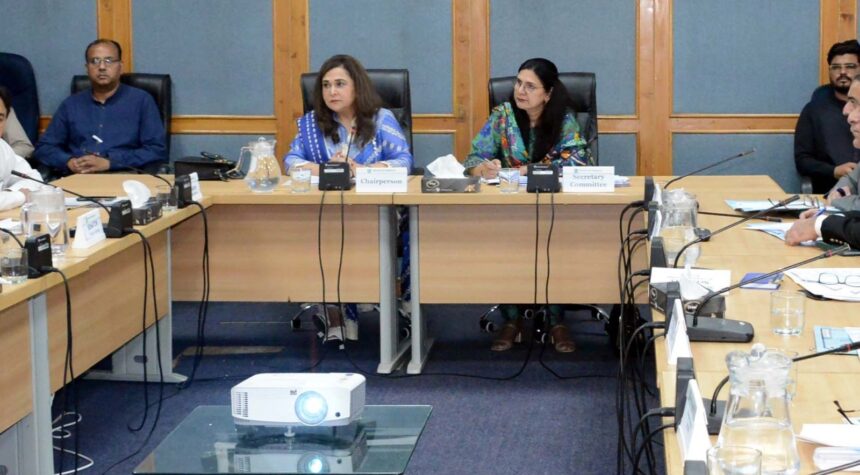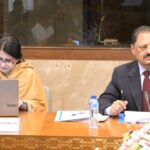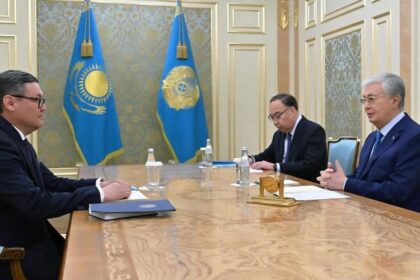**Senate Committee Slams Bureaucratic Negligence, Urges Swift Action on Cultural Heritage Preservation**
The Senate Functional Committee on Devolution has expressed grave concern over persistent bureaucratic apathy and critical underfunding for Pakistan’s cultural preservation initiatives, demanding that the Ministry of National Heritage and Culture Division take urgent and concrete measures to safeguard the nation’s rich heritage. Lawmakers pressed for increased transparency, better project management, and broader public engagement to ensure the protection and promotion of cultural assets.
Chaired by Senator Dr. Zarqa Suharwardhy Taimur, the Committee convened to assess the Ministry’s current performance and policies. Senators Fawzia Arshad and Poonjo Bheel also participated actively in the discussions. The meeting opened with stern criticism over the unexplained absence of the Secretary, Establishment Division, with committee members underscoring that public officials must be held accountable to taxpayers. The Chairperson instructed the absent Secretary to attend the next session and provide long-delayed information on Independent Power Producer (IPP) agreements.
During the proceedings, the Secretary of the National Heritage and Culture Division delivered a detailed presentation, highlighting chronic financial constraints. Out of a Rs. 20 billion request to the Planning Commission, a mere Rs. 2 billion was approved—insufficient, he said, to adequately sustain the Ministry’s essential functions or development projects. Nevertheless, the Ministry has managed to maintain an annual events calendar and hold weekly cultural activities.
Senator Dr. Zarqa voiced strong concerns about the theft and illegal smuggling of antiquities. In response, the Secretary assured the committee that the Ministry is working closely with law enforcement agencies to prevent such crimes and is actively pursuing the repatriation of stolen artifacts through various bilateral agreements.
Senator Fawzia Arshad emphasized the necessity for deeper community engagement in cultural preservation. She advocated for expanded partnerships with educational institutions and called for increased publicity for cultural events. Additionally, she proposed integrating national heritage topics into academic curricula to help instill cultural awareness and pride among Pakistani youth.
The issue of Rawat Fort’s stalled preservation efforts was also reviewed. Officials explained that restoration work, initiated in 2017, remains only 40 percent complete due to resource limitations. The project’s remaining phases are currently on hold. The committee learned that it is not feasible to introduce ticketing at the historic site, as it contains a mosque frequented by worshippers.
The Ministry reported two major archaeological finds—the Mai Qamro Mosque and the Muqarab Khan Tomb near Gulberg Housing Society. Restoration is underway at both sites. The Mai Qamro Mosque, which dates to the 15th century, is hailed as one of the oldest mosques in the Islamabad region and a significant historical asset.
Presentation of the ongoing restoration of the Ban Faqiran Stupa in the Margalla Hills also came under scrutiny. The Chairperson sharply criticized the use of inappropriate materials and poor project oversight, directing the Ministry to redo the conservation work utilizing historically authentic methods. Additionally, she requested a detailed report naming those responsible for the substandard restoration.
The Committee further recommended that institutional knowledge from senior officers nearing retirement should be documented to preserve expertise and historical continuity within the Ministry.
The session concluded with directives for enhanced coordination among relevant agencies, stricter monitoring of heritage projects, and renewed efforts to involve the public in safeguarding and celebrating Pakistan’s cultural legacy.











